The World Peace Forum Special Video Conference hosted by Tsinghua University convened on June 16, 2020, under the theme of “Post-Pandemic Era: China and the World.” A sub-forum on “AI in the Post-Pandemic Era” was co-organized by the Center for International Security and Strategy (CISS) and the Institute for AI International Governance at Tsinghua University.
Professor Liang Zheng, Vice President of the Institute for AI International Governance at Tsinghua University presided over the sub-forum. The keynote speakers included Professor Xue Lan, President of the Institute for AI International Governance and Dean of Schwarzman College, Professor Zhang Yaqin, Chair Professor of AI Science and Dean of the Institute for AI Industry Research at Tsinghua University, Stuart Russell, Professor of Computer Science and the founder of the Center for Human-Compatible Artificial Intelligence at the University of California, Berkeley, Professor Wendell Wallach, Chair of Technology and Ethics Studies of Interdisciplinary Center for Bioethics at Yale University, and Max Tegmark, Professor at the Massachusetts Institute of Technology and President of the Future of Life Institute, U.S.A..
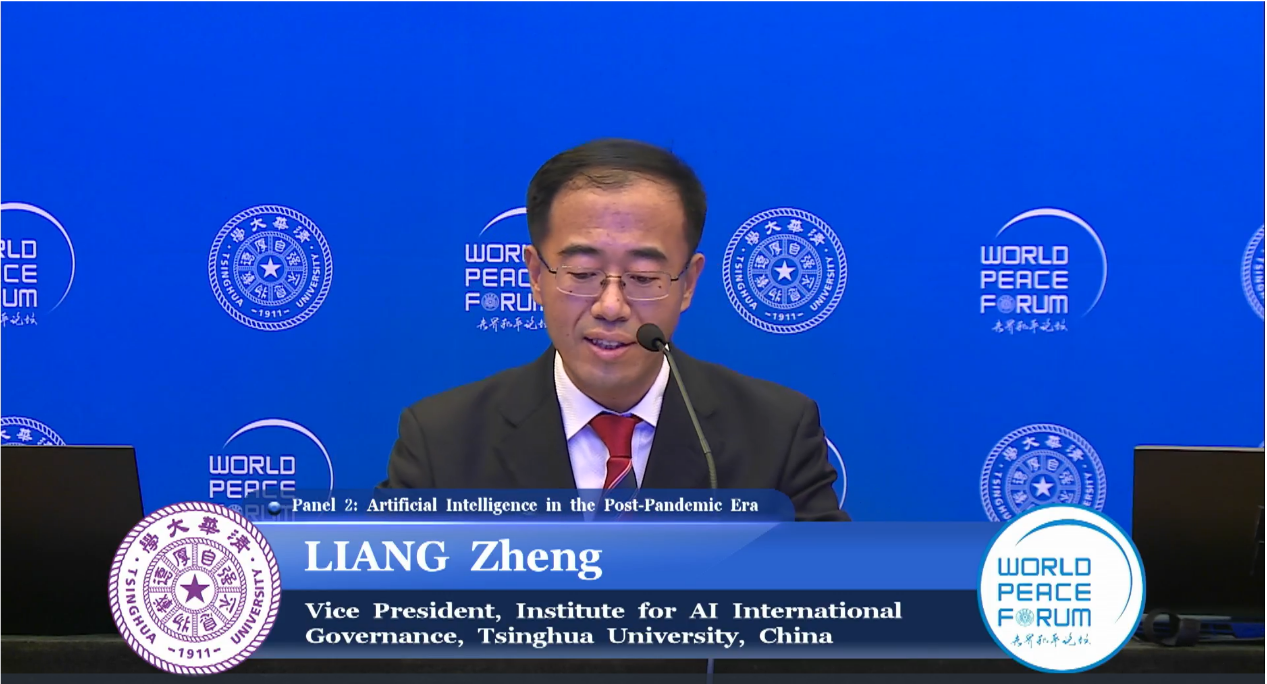
In his speech, Prof. Xue Lan pointed out that this pandemic has made the world realize that since human society faces so many external challenges that no country can shut itself away, we need effective international cooperation. AI has played an important role in the fight against COVID-19. During the pandemic, the debate on large-scale application of innovative AI technologies has reflected diverse backgrounds and attitudes towards AI-related issues in different cultures. However, AI has indeed been effective in the early warning, the data collection, and the analysis during the pandemic, reminding us that like other technologies, AI is simply a tool whose role depends on our choice. Prof. Xue went on to introduce efforts made by multiple parties to establish and implement ethical principles for AI and suggested that China and the U.S. should work together in the field of AI to promote the sound development of both the technology and their bilateral relations in the spirit of cooperation, coordination and healthy competition.
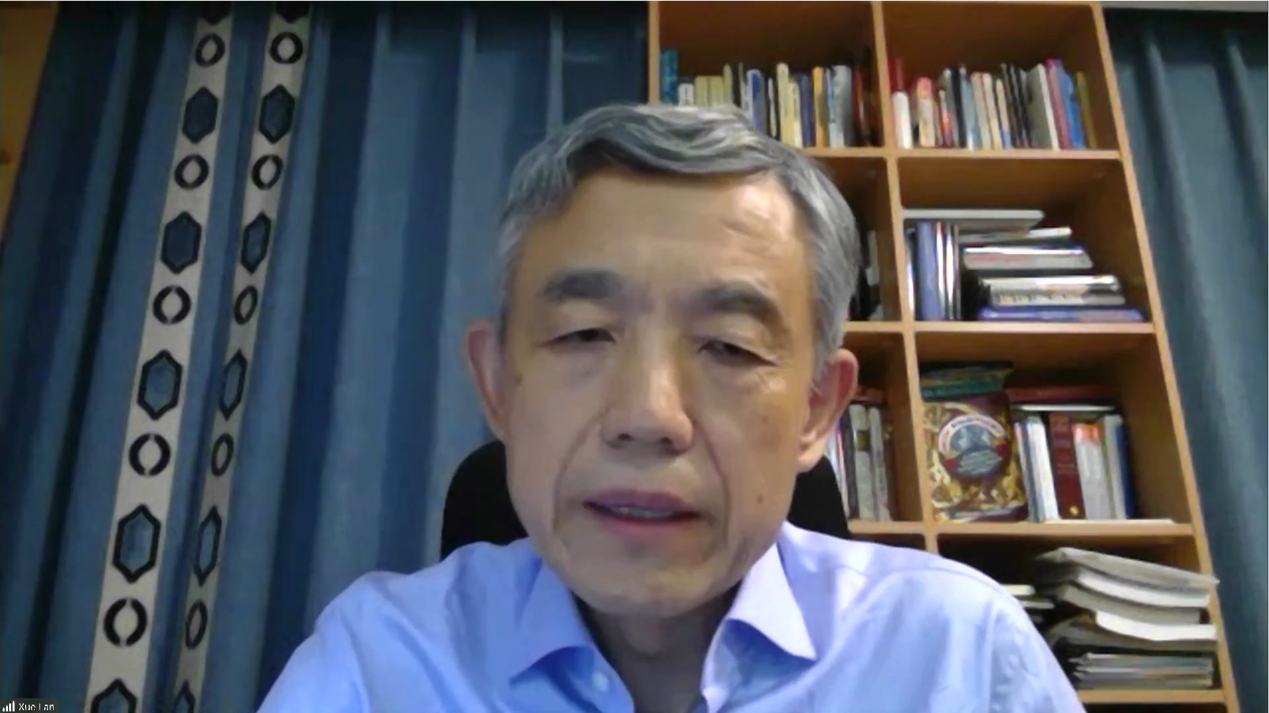
Prof. Stuart Russell pointed out that although AI itself cannot solve the COVID-19 crisis, it has played an essential role in the early detection of patients, the collection and analysis of outbreak data, and policy-making. In response to the current AI development, he commented that blindly pursuing commercial interests and the lack of preventative awareness are vital lessons to be learned from this pandemic. For future improvement, countries need to conduct rational, long-term discussions on all global threats, including COVID-19 to find corresponding solutions. Prof. Russell proposed three suggestions regarding the global AI agenda: first, to ensure that humans know whether the other party in the dialogue is a machine or a human; second, to prohibit machines from making decisions to eliminate human-beings; third, to avoid strong AI arms race.
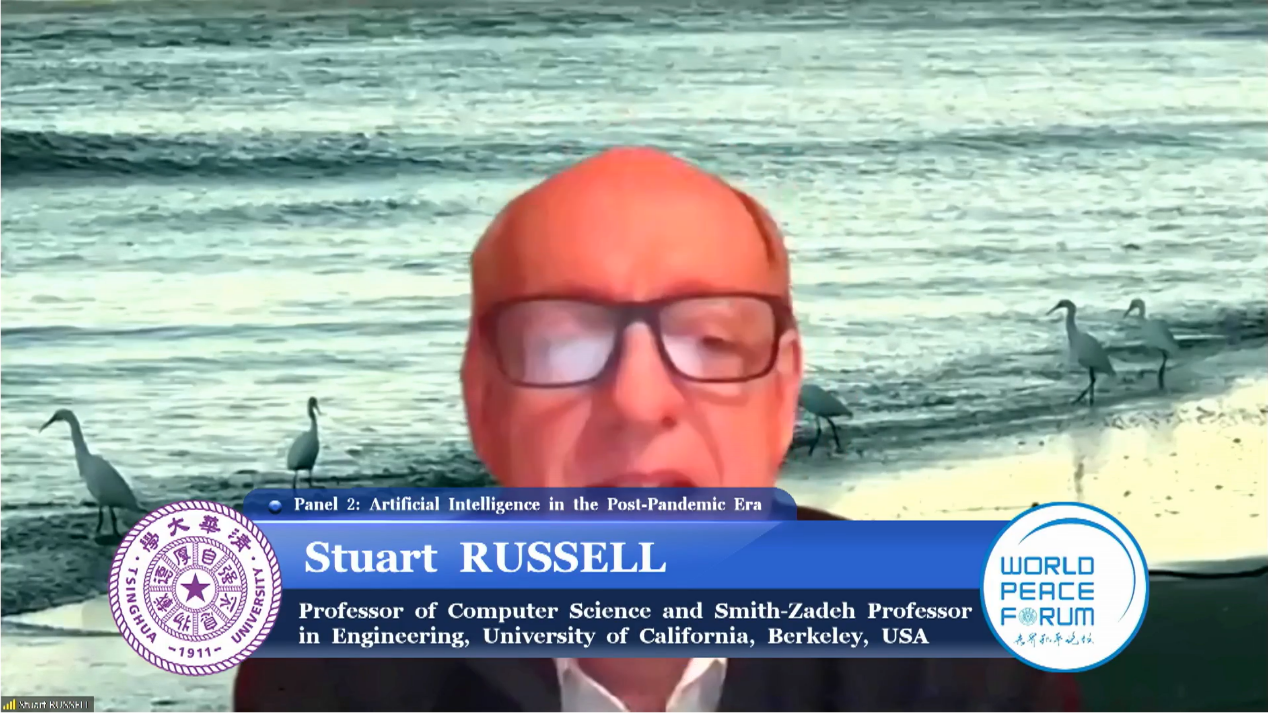
Prof. Zhang Yaqin also introduced the important role of AI in the combat against COVID-19 and indicated that the development and use of related technologies have brought about issues such as privacy protection. Solving these problems requires cooperation between governments and societies to strike a feasible balance. Taking Baidu's AI practices during the outbreak as a case, Prof. Zhang proposed several principles for AI companies to sign agreements with their users, including user awareness, consensus with users, as well as accountability and consequences for breaching the consensus.
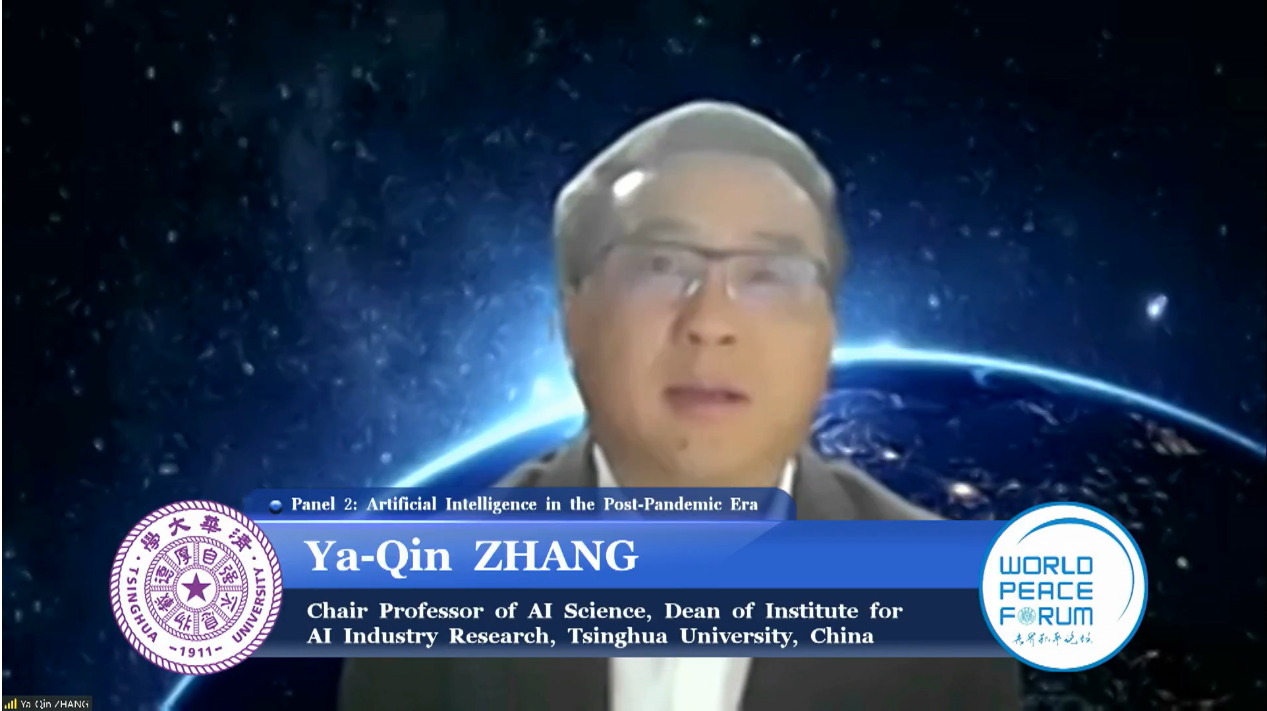
Prof. Wendell Wallach believed that evolving and unpredictable digital technologies had magnified structural inequalities. With the push from commercial interests and market monopoly, new technologies’ continuous development could bring unforeseeable consequences. As people delegate more tasks to complex systems, accidents could happen. He also analyzed China’s AI principles and its cooperation and differences with other countries, noting that the pandemic has forced all countries to reassess their existing ethical values, make compromises, and take steps for a genuine consensus.
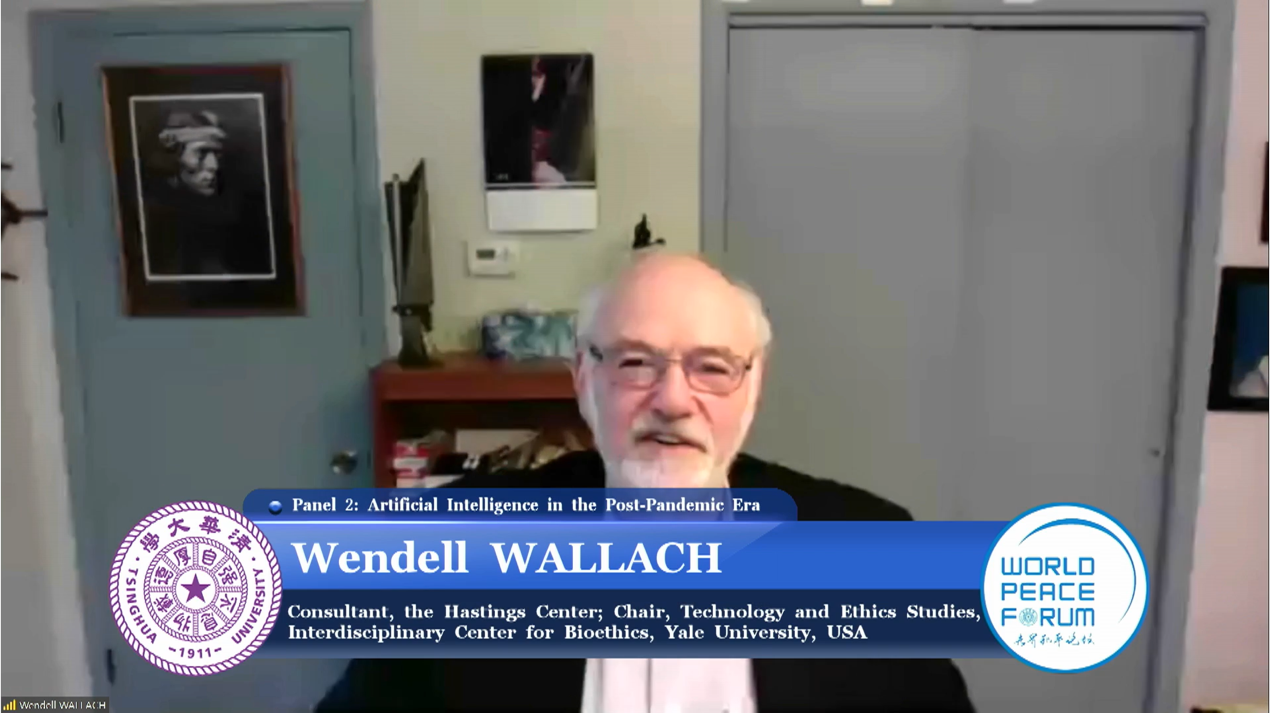
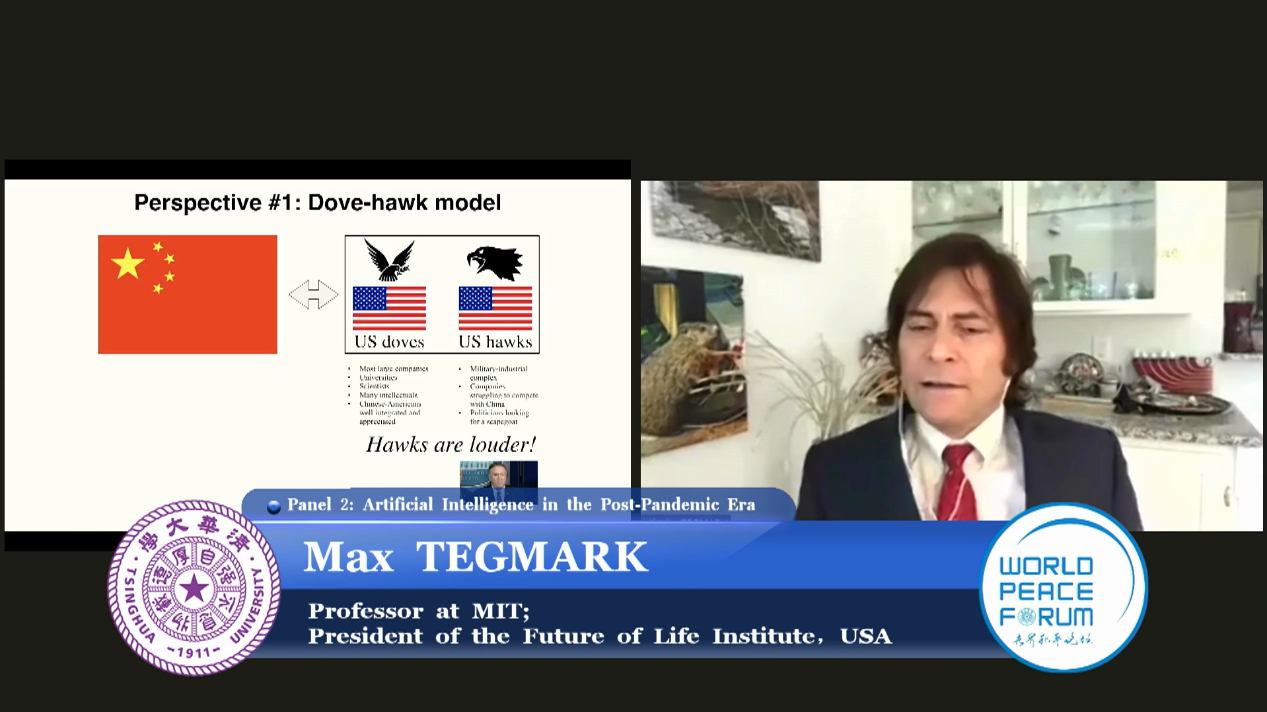
Starting with "the Eagle and the Pigeon" model of China-U.S. relations, Prof. Max Tegmark explored the relationship between AI and peace. He applauded how China is committed to the community of shared future for mankind in terms of AI development and principles, emphasizing that society needs to be more resilient in the face of various uncertainties in the post-pandemic era. As the world becomes increasingly interconnected, global problems can only be solved through global cooperation. Prof. Tegmark added that we should hear more from professional opinions and suggestions when responding to global issues.
The sub-forum closed with the panelists exchanging views with online media and audience on topics including the commercialization of AI and other new technologies during the pandemic, AI and China-U.S. relations, and AI in arms control. Panelists agreed that despite the challenges in developing and implementing AI technologies and its ethical principles, the concerted efforts by experts across the globe can still exert a positive impact on many key global issues, such as the development of China-U.S. relations and AI cooperation.
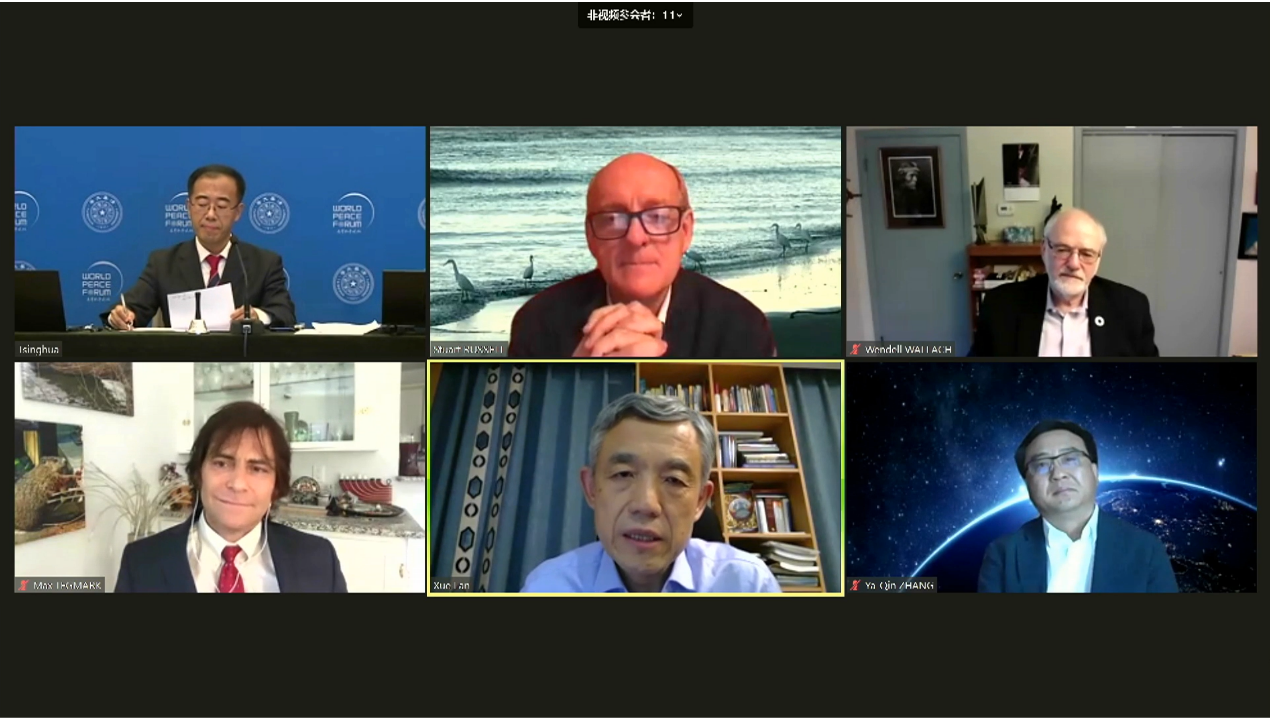 The World Peace Forum is China’s first annual high-level non-governmental global security forum. It is hosted by Tsinghua University, co-organized by the Chinese People’s Institute of Foreign Affairs and organized by CISS. Since its inception in 2012, the forum has been held eight times. Due to the pandemic, the 9th World Peace Forum is expected to be held in 2021. At this forum, former politicians, heads of think tanks, and strategists from countries gather to discuss new security challenges facing the world today, propose constructive solutions, and strive to promote security cooperation in the international community.
The World Peace Forum is China’s first annual high-level non-governmental global security forum. It is hosted by Tsinghua University, co-organized by the Chinese People’s Institute of Foreign Affairs and organized by CISS. Since its inception in 2012, the forum has been held eight times. Due to the pandemic, the 9th World Peace Forum is expected to be held in 2021. At this forum, former politicians, heads of think tanks, and strategists from countries gather to discuss new security challenges facing the world today, propose constructive solutions, and strive to promote security cooperation in the international community.
